Just three of the five county supervisors were present on Tuesday. | Screenshot.
###
It was a shorthanded Board of Supervisors for the first meeting of 2024, with both Fourth District Supervisor Natalie Arroyo and Fifth District Supervisor Steve Madrone absent for personal reasons.
Here’s a rundown of what was discussed:
Safe parking program
In an effort to increase options for people experiencing homelessness, the Board of Supervisors today extended its “Safe Parking – Safe Shelter Pilot Program” for an extra two years.
First approved in June 2022, the program allows a government agency, religious institution, nonprofit or for-profit organization to provide people with a safe place to park and/or sleep at no cost while accessing services. However, to date, no organization has stepped forward to establish such a facility.
Humboldt County Planning and Building Director John Ford said county staff did some research to find out why there’s been no interest expressed thus far and found that, among the organizations typically involved in such endeavors, nobody was aware that the program exists.
Over the next 24 months, Ford said, his staff plans to conduct a public outreach campaign in hopes of drumming up interest while also searching for grant funding to help open such a facility, which could be granted over-the-counter permit approval with a sufficient operations plan.
The City of Arcata currently has the only Safe Parking Program in Northern California, and Third District Supervisor Mike Wilson invited Arcata House Partnership Executive Director Darleen Spoor to speak about the program’s challenges and highlights.
She said that while there was a “big learning curve,” the program has become a big success. Since launching in late April of 2022, Arcata’s Safe Parking Program has provided 14,625 “bed nights,” which count individual dates on which a client is present in the safe parking area, located off of Samoa Boulevard. Nine percent of clients have exited the program to temporary shelter while 30 percent have exited to permanent shelter, according to Spoor.
The program offers a variety of services, and Spoor highlighted a couple of success stories, including that of a 71-year-old woman who suddenly found herself homeless and frightened with various health issues. The program, which works with various partner agencies, helped her to get into permanent housing, where she remains today.
But Spoor emphasized the importance of funding.
“For us, this Safe Parking Program costs us $478,000 a year,” she said. “That’s $45 a night per person,” which is less than the cost of typical homeless shelters and “certainly less than what it costs us, I think, to have people on the streets and in and out of emergency rooms.”
First District Supervisor Rex Bohn, who is serving as board chair this year, said funding is “the big elephant in the room,” given the state’s $68 billion budget deficit.
Sheriff William Honsal said he used to think safe parking programs were “an absolutely terrible idea” but changed his mind after seeing the success of Arcata House Partnership’s example, among others.
“If we have nowhere to send people then we can’t actually enforce laws about people camping on public property or infringing on the rights of others,” Honsal said, though he emphasized the importance of such programs being properly managed.
Undersheriff Justin Braud also vouched for Arcata’s program as “a lifesaver for us” and a problem-solver for the Sheriff’s Office, getting people out of backyards, greenbelts and public spaces.
Connie Beck, director of Humboldt County’s Department of Health and Human Services (DHHS), said Arcata House Partnership is a wonderful referral source for the county’s housing program along with other programs from community partners that work with the homeless population. Beck said she’d love to see a safe parking program in Southern Humboldt.
Second District Supervisor Michelle Bushnell agreed, saying communities in her district are “begging for solutions” but people experiencing homelessness there often don’t want to leave the area for services.
Nezzie Wade, a founder of local nonprofit Affordable Homeless Housing Alternatives, emphasized the difficulty of running such a program, saying it requires both coordination and collaboration among a variety of community partners. County outreach will be key, she said.
A motion to extend the program’s timeline for two more years was approved unanimously.
Nitrous oxide
Later in the morning, the board discussed the rising popularity of nitrous oxide — aka “laughing gas,” often sold in little metal canisters called “whippits” — as a recreational drug. When inhaled it can cause euphoria and giddiness, but its use has been linked to serious health problems, including neurological issues, loss of blood pressure, organ failure and heart attack.
Regulation is complicated by the fact that these canisters have legitimate uses, including as a propellant for whipped cream and an engine performance booster in automobiles.
Bushnell said she and Wilson have been working with DHHS to address the growing threat of recreational use in the county.
Sofia Pereira, the county’s public health director, provided an overview of the issue, noting that it’s already illegal to sell or possess whippits for the purpose of getting high, and illegal to sell to minors, and yet the canisters are often sold in smoke shops.
The county submitted a legislative proposal to its state public health association that would have banned the sale of nitrous oxide for tobacco retailers, but the group chose not to sponsor that legislation, Pereira said. The county is now exploring the possibility of including a nitrous oxide ban in its tobacco retail licensing ordinance, which is in the process of being implemented.
Shelter Cove resident Stephanie Andrews called in with a story about the “great damage and harm and heartbreak” nitrous oxide abuse has caused in her family. Many in the mental health and family services field underestimated the drug’s “emotional” addictiveness among people experiencing stress and anxiety, she said.
“I have a son in rehab for this. I have a brother that’s recovering from nerve damage. I’m living with the effects of this,” Andrews said. “So to have it available in gas stations and tobacco shops is totally irresponsible.”
Wilson said comprehensive scientific data about the drug’s public health impacts are lacking, and sometimes legislation can help spur such research, though he said that can be a frustratingly slow way to address such issues. He also talked about the pollution aspect of the issue, with people seeing piles of these cartridges discarded in the environment. He said he would lean toward greater regulation.
“If I had to choose a society where it was a little harder to make whipping cream but I had less damage to the youth in my community, I would choose” that option, Wilson said.
He again emphasized that state legislators may be in a better position to enact change but said he’s fully in support of the proposed resolution, which identifies nitrous oxide as “an important local issue” that “can negatively impact children and youth.”
The resolution also advises the Board of Supervisors and the Public Health Branch of DHHS “to address the illicit sale, distribution and use of nitrous oxide through education and policy approaches and bring back such recommendations at a later date.”
The board unanimously approved the resolution.
Partnership HealthPlan
Roughly 44 percent of Humboldt County residents are enrolled in Medi-Cal, according to Nancy Starck, DHHS’s legislative and policy manager, and here in rural Northern California the program’s health care benefits are provided by Partnership HealthPlan of California.
On January 1, the nonprofit organization expanded to an additional 10 counties, from 14 to 24, which required the county to amend some sections of its government code. It also means that Humboldt will have fewer spots on Partnership’s board of commissioners – just two rather than the current three.
“This will accommodate representation from Partnership’s 10 new counties while maintaining a functional-size governing commission,” Starck explained to the board.
According to a staff report, Tory Starr, the president and CEO of Open Door Community Health Centers, will wrap up his four-year term on April 22 and the ensuing vacancy will not be filled. Humboldt’s other two members are Starck, representing the county, and Liz Lara O’Rourke, the CEO of United Indian Health Services, Inc.
Odds and ends
- An appeal of the Planning Commission’s approval, back in November, of a 19-lot subdivision in McKinleyville was postponed to the meeting of Jan. 23 so that the entire board can be present.
- Today is National Law Enforcement Day. Bohn thanked goodness for folks in that line of work. Bushnell took a moment to “recognize what law enforcement does for our community and for our nation” and to thank “the men and women that have lost their lives … serving us and protecting us.”
- After proclaiming January 2024 National Mentoring Month, the board thanked Big Brothers Big Sisters of the North Coast, CASA of Humboldt and Boys and Girls Clubs of the Redwoods for their work in that regard, and several people spoke to the powerful impact mentorship has on young people.
- Planning Commissioner and cannabis farmer Thomas Mulder, dressed casually (right), was “bummed out” about having “dragged” his son to the meeting in order to “show him his constitutional rights” only to find two of the five supervisors absent. (He did not explain how his son’s rights were infringed upon by said absences.) Mulder also thanked the board for approving a payment plan for people delinquent on their Measure S taxes and said his own grow operation was misclassified as mixed light rather than outdoor, costing him extra.
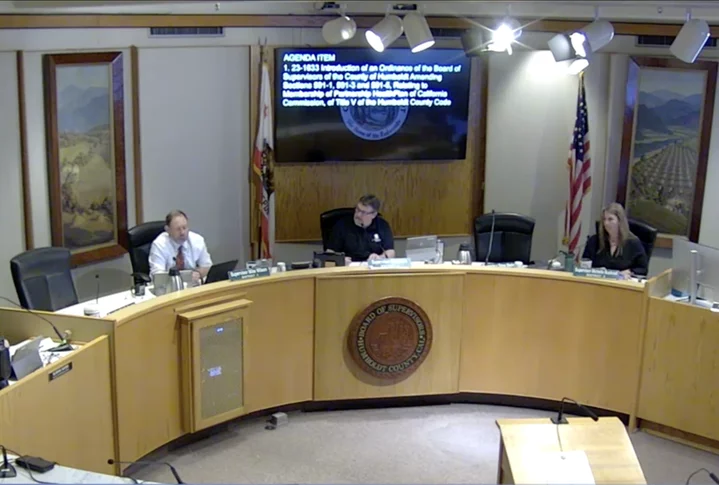
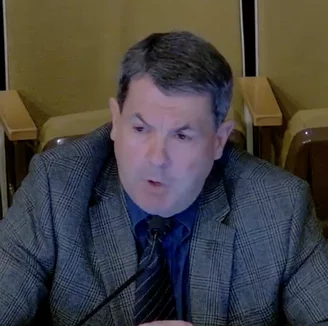
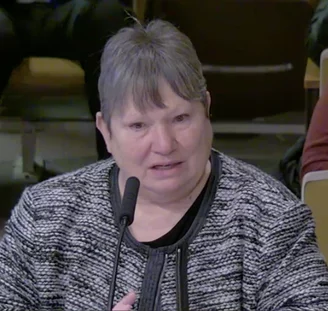
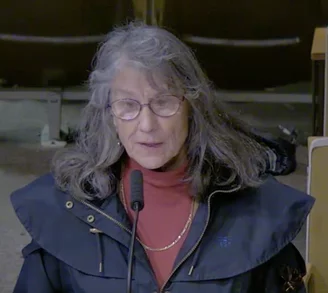
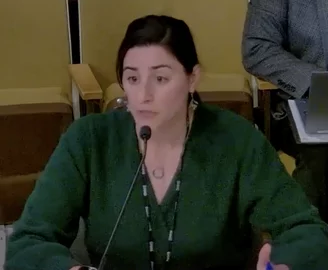
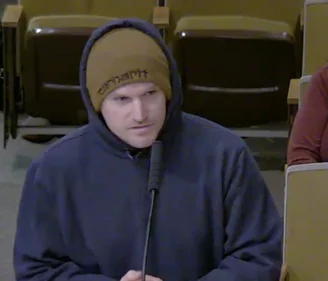
CLICK TO MANAGE